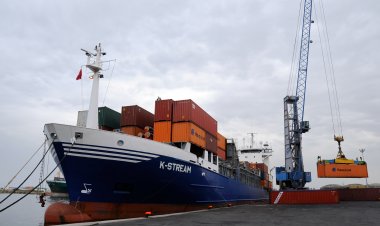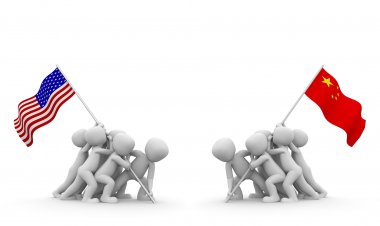The Problem
The issue of African agency has routinely been relegated to the sidelines of international-relations scholarship and policymaking. Far too often, Africa has been framed as a place acted upon, not as a continent, space, or actor with an evolving, living, and breathing agenda of its own. Instead, discussions of international power and influence have been reserved for those who enjoy economic and/or political clout, dominance, or even hegemony.
Overlooked is how African actors navigate the world and, more importantly, the question of what their agendas are. When questions are asked, they are framed through Eurocentric lenses that miss key nuances and complexities that color the African landscape.
Not only is this a challenge in scholarship, but it has also had visible effects on policy. This is seen in the formulation of traditional powers’ policies vis-à-vis the continent and its various actors—particularly in the current shifting global order.
African Agency Properly Considered
I explored these issues in my research on the relationship between the Southern African Development Community (SADC) and China. I conducted field research interviews at the SADC Secretariat in Gabarone, Botswana, in 2019. I also interviewed experts from the South African Institute of International Affairs in Johannesburg, South Africa, for their insights on the factors involved.
My research, published in two chapters in an edited volume titled Global Perspectives on China’s Belt and Road Initiative: Asserting Agency through Regional Connectivity, shows that, contrary to the popular assumption that the “East” has simply inserted itself into Africa, these new configurations sparked an active self-driven turn for the continent toward the East (titles of the chapters and the link to the edited volume are below).
In taking African perspectives seriously—in this case, the SADC secretariat—I found that contrary to the idea that African institutions are passive and lackadaisical actors, SADC actively sought cooperation and collaboration with China and the BRI, not the other way around. Equally, the terms of engagement remain fully embedded within SADC’s framework of cooperation and priority areas and are not driven exclusively by Chinese agendas.
Why It Matters
Africa’s agency matters precisely because:
- it is a reality that has tangible effects for the continent and its chosen path(s) to development and political engagement
- it directly affects Europe’s position in the current global order.
Newer actors such as China value African actors as equals (at least on the official, state-regional institution level). If Europe seeks to remain relevant to the continent and the opportunities it presents—markets for European businesses, political comity, and support on issues of global concern, and policy coordination in the realm of climate change, to name a few—taking Africa’s agency seriously is required.
Seeing African actors simply as easily persuaded by China’s “charm”—both in soft and hard power—ignores how African actors drive engagement on their own terms and on issues of preexisting concern prior to China’s “entrance” into the continent.
How actors in Europe understand this kind of agency will be crucial to the sustainability of relations between the two continents into the future. Overlooking this will inevitably lead to ill-informed and/or shortsighted European policy prescriptions with respect to relations with Africa.
About the Author
Dr Stacey Links is a South African researcher whose work is focused on the nexus of critical international relations, critical human rights scholarship, and foreign policy. She is a lecturer at the Leiden Institute for Area Studies (LIAS) and a researcherat theLeiden Asia Centre.
References
Links, S. 2021. “Ascertaining Agency: Africa and the Belt and Road Initiative,” in Florian Schneider (ed.) Global Perspectives on China's Belt and Road Initiative: Asserting Agency through Regional Connectivity. Amsterdam University Press. Amsterdam.
Links, S. 2021. “Parameters and Pathways: Agency in the Case of the Southern African Development Community,” in Florian Schneider (ed.) Global Perspectives on China's Belt and Road Initiative: Asserting Agency through Regional Connectivity. Amsterdam University Press. Amsterdam.




